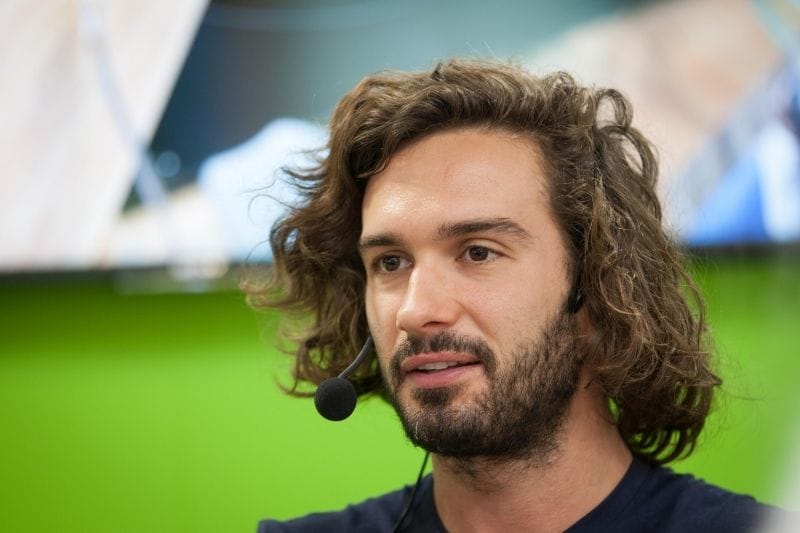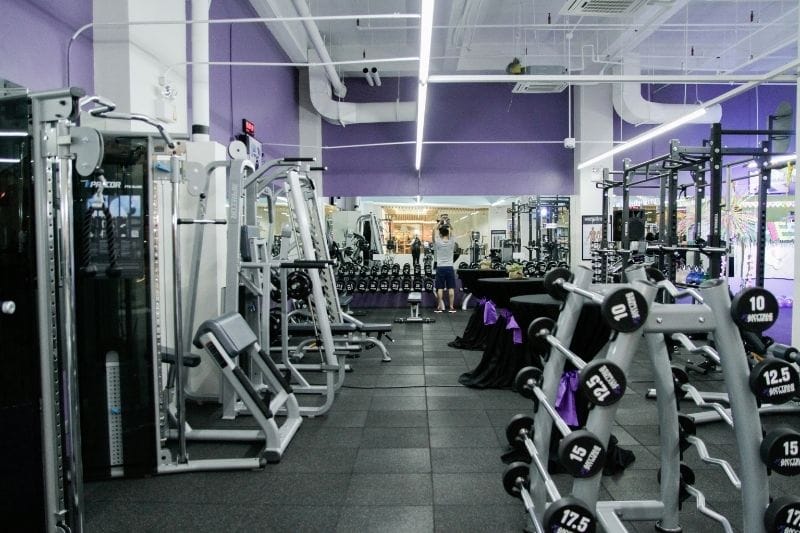Channel 4 has teamed up with Joe Wicks for a new documentary, and it is definitely going to get people talking. He has worked with Professor Chris van Tulleken to create what they are calling the UK’s most dangerous health bar. The idea is to highlight the controversial ingredients found in ultra processed foods and to push the government to tighten up food regulation.
As I write this, the documentary itself has not aired yet, so my thoughts may well change, but Joe has already shared a post about it on social media. The communication so far has not been great. It is attention grabbing, but it lacks nuance.
On the surface, it sounds like a bold move. We do have a real issue in the UK with diets that are high in ultra processed foods. But the way this kind of message lands is not always straightforward. Stunts like this can grab attention, but they can also create fear and confusion, especially when they come from someone with Joe’s level of influence. That is why this one makes me a bit uneasy.
It is also worth pointing out that not that long ago, Joe was recommending protein bars as part of his own food plans. So it is a bit odd to see him now launching a deliberately unhealthy one to make a point as, in all honesty, all are basically ultra processed!
What Joe Wicks and Channel 4 Are Doing
The documentary follows Joe as he learns more about the UK’s health problems and the research linking ultra processed foods to around 14 percent of premature deaths. He then works with Chris van Tulleken to design a protein bar deliberately packed with ingredients that have been linked in research to things like cancer, stroke, diarrhoea and early death. All completely legal and commonly used.
He is not just making the bar for the cameras either. He is launching it to the public and the press as a way of putting pressure on the government to act. The point is to shine a light on the gap between what is legal and what is actually good for us.
Why Raising Awareness About Ultra Processed Foods Can Help
There are some positives here. We do need to talk more openly about the UK food environment. Many people underestimate how much ultra processed food they eat. Marketing can be misleading and some ingredients probably deserve more scrutiny than they get.
Joe has a huge platform and that can be a good thing if it gets more people thinking critically about what they eat. There is plenty of evidence showing that diets high in ultra processed foods are linked with worse health outcomes over time. If this gets people reading labels a bit more closely, that is not a bad thing.
Why This Kind of Stunt Could Backfire
The issue is that this kind of stunt can oversimplify a really complex topic. It takes a population level problem and turns it into a headline about a single product. It frames ingredients as if they are instantly dangerous on their own, rather than looking at what really matters, which is overall diet and lifestyle.
It can also end up making people feel judged or alienated. Not everyone has the money, time or energy to live on fresh whole foods all the time. For some families, a few ready meals or convenience snacks are what make daily life manageable. It is not helpful to make people feel like they are poisoning themselves for not shopping in a certain way.
And because Joe has such a big following, nuance can get lost fast. A carefully balanced documentary can quickly turn into a viral clip or a headline on Instagram that makes people panic about protein bars. Once that happens, it is hard to get the balance back.
Why Dose and Context Matter with Ultra Processed Foods
The research behind that 14 percent figure is about patterns, not single foods. Someone eating mostly whole foods, staying active and having a balanced diet is not going to run into problems because they eat a protein bar once a day.
I sometimes see this with my online fitness coaching and weight loss coaching clients. They might worry that one snack will undo all their hard work. I get it, but it will not undo anything. What matters is the overall picture. One item does not define your health. The problem is when ultra processed foods make up a big chunk of your diet over time. That is not the same as grabbing something quick between meetings.
The Challenge of Balance and Moderation
There is one challenge of course. It is very easy for people like me and other coaches to bang on about balance – just one per day is fine and so on. But it is worth recognising that not everyone can eat in moderation. Some ultra processed foods are deliberately designed and tested to make you want more. That is part of why they are so profitable. For some people there are also emotional eating patterns or ingrained habits that make moderation genuinely difficult.
You could argue that for some people, cutting these foods out completely might actually help to break the cycle because it forces a change. But that is often easier said than done. It can work for some, but for others it just leads to restriction, frustration and eventually going back to old patterns or even a binge. So while I do believe that balance is the most sustainable approach, as coaches we have to be careful not to oversimplify this. Preaching balance is fine, but it should always come with an understanding of the real challenges people face.
The Reality of Food Accessibility in the UK
We also have to be realistic. A lot of people use ultra processed foods because they are cheaper, easier to store and quicker to prepare. I have some clients with busy jobs and young kids who rely on a couple of ready meals a week to get through. They are not doing anything wrong. My job is to help them tweak things so that their overall diet works for them, not to tell them they have failed because they bought a packet of something.
Making healthier food easier to access and more affordable would do more for public health than a shock stunt ever will.
Joe Wicks and the Binge and Restrict Cycle
This also lands in the context of Joe’s own approach to food, which he has talked about online. Not long ago he shared a post where he said he had “relapsed” by eating Jaffa Cakes after cutting sugar out of his diet completely, including fruit. That kind of language can make normal eating sound like something to feel guilty about.
It is also a classic example of binge and restrict. You cut something out entirely, think about it constantly, then end up eating it anyway and feeling like you have failed. Joe is not unique in that. Lots of people fall into that pattern. But because he has such a big audience, the way he talks about it matters. It can reinforce the idea that foods are either good or bad, which is not a helpful mindset for most people.
A More Balanced Way to Talk About Ultra Processed Foods
When I work with clients, often one of the first things we do is step away from all or nothing thinking. If someone loves biscuits, I would rather they have a couple with a balanced meal than cut them out and then feel guilty when they give in later. If someone relies on some convenience foods, we work around that. We make changes that fit their life rather than pretending they live in a test kitchen.
This is why Joe’s stunt does not sit quite right with me. I get why he is doing it, and there is some good in it, but it risks pushing people towards fear and extremes. I feel his social media post is already doing this and, even if the documentary does not, I would imagine way more people will see the post than the TV programme!
Frequently Asked Questions
What are ultra processed foods?
They are products made mostly from industrial ingredients rather than whole foods. Examples include fizzy drinks, crisps, packaged snacks, some ready meals and processed meats.
Is one protein bar a day unhealthy?
No. In the context of an otherwise healthy diet and active lifestyle, it is not likely to be a problem.
Is it better to avoid ultra processed foods completely?
For most people that is not realistic or necessary. Improving your overall diet is more practical than cutting things out entirely.
Are all ultra processed foods the same?
No. Some are much worse than others. Sugary drinks and processed meats tend to carry more risk than something like fortified plant milk or a decent protein bar.
Why are ultra processed foods linked to health problems?
They are often higher in calories, sugar, salt and unhealthy fats, and lower in fibre and nutrients. Some additives might also have effects on gut health or metabolism, but the main issue is usually diet quality overall.
How can I eat better without going all or nothing?
Focus on adding more nutritious foods, cook a bit more when you can, and make small changes you can stick with. It is not about perfection.
Finding a Practical Approach That Actually Works
A big part of why this topic gets so heated is that most people are stuck between extremes. That is exactly what I help clients work through in my weight loss coaching. We focus on realistic changes that fit your life, not strict rules or shock tactics.
If you are tired of all the noise and want a plan that actually works for you, my weight loss coaching programme can help you build healthier habits without cutting out everything you enjoy.




